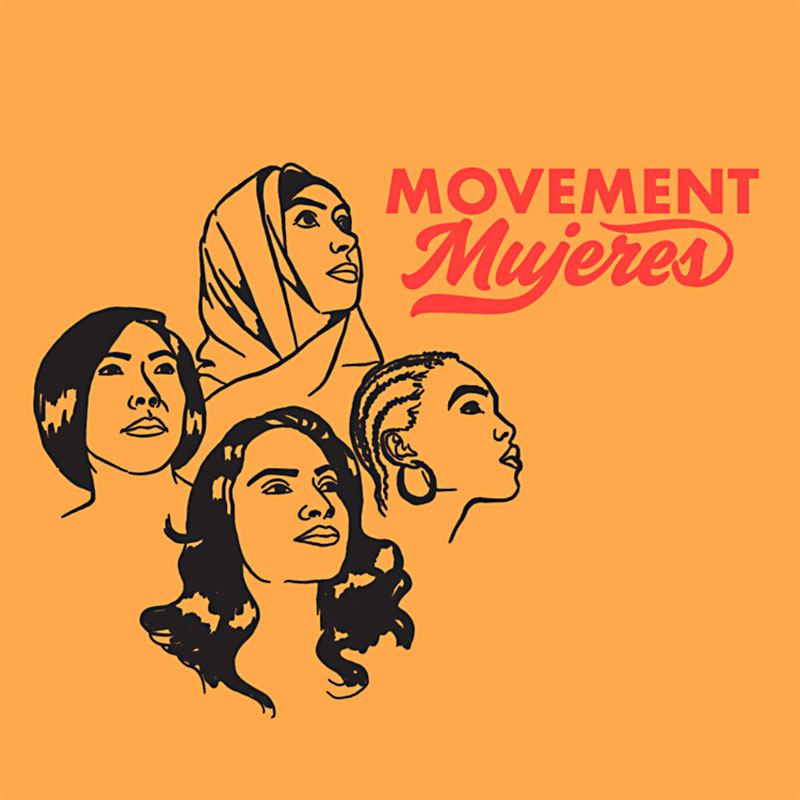Movement Mujeres Looks to Empower Young Women of Color
Grant money helps project expand and add fellowship program
By Mary Tuma, Fri., Dec. 14, 2018
Latinos make up 40% of the state's population, but Texas voters had never before sent a Latina to Congress. The November midterms changed that, as two Latinas – state Sen. Sylvia Garcia of Houston and former El Paso County Judge Veronica Escobar – punched their tickets to D.C. That same night, Harris County voters elected 17 black Democratic women to judicial seats. And while Latinas Gina Ortiz Jones and Lupe Valdez fell short in their efforts to unseat U.S. Rep. Will Hurd and Gov. Greg Abbott, the night was a victory for women of color in Texas politics.
Those gains are long overdue and could – and should – have been greater, says Cristina Tzintzún of Austin-based Latino voter mobilization group Jolt. "Some powerful and transformative things happened during the midterms," Tzintzún tells us. "But considering the number of Latinos in the state, these victories should have been happening in 1980 – not 2018. I think many women of color just don't have the movement lifting them up."
Tzintzún hopes to change that. For months she's talked with her friend Wendy Davis, the former state senator and gubernatorial candidate who now runs Deeds Not Words, a nonprofit dedicated to progressive policy action, about the dearth of women of color in leadership roles in politics and elsewhere. When funding from New York feminist group the NoVo Foundation popped up, the women and their organizations seized the opportunity, launching Movement Mujeres in November. The four-year, $2 million grant allowed them to add six new employees (three each at Deeds Not Words and Jolt) and to create a leadership training program for 1,000 women and a fellowship program for 50 participants over four years.
The fellowship program, which is currently taking applications, will connect women of color to resources they often face barriers obtaining. Fellows will build activist and public speaking skills; work with a mentor; build a professional network; learn to fundraise; and position themselves for key leadership positions in the philanthropy, nonprofit, and government world, including elected office at the local level. Fellows will be awarded a $1,200 yearly stipend to attend quarterly two-day gatherings, as well as travel and child care expenses.
Tzintzún and Davis are seeking not a quick fix but a systemic transformation, with an infrastructure that allows women of color to "disrupt the current hierarchies and male-dominated structures" in government and the nonprofit sector and build a leadership pipeline. "When people think of Texas they think cowboys roaming the West, but the picture they should be imagining is young black and brown people – that's the Texas we want to tap into and whose voices we want to raise," says Tzintzún.
Those raised voices can address issues that particularly impact women of color, including student debt, immigration, health care access, and the wage gap. For example, black women disproportionately suffer in the state's maternal mortality crisis, and women of color generally bear the brunt of reproductive rights barriers imposed by the state. With no state laws to enforce pay equity, Texas Latinas are paid 44 cents for every dollar paid to white, non-Hispanic men, while black women are paid 58 cents (the average woman makes 79 cents).
"Women in Texas, especially women of color, have been on the receiving end of so much hostile legislation for some time now," says Davis. "And of course that's going to be the case when the people most impacted aren't represented at the table. We want women to take their rightful place in those policy and political conversations."
The project comes from a deeply personal place for both women, who have experienced these barriers firsthand. Davis doesn't mince words about her privilege, fully acknowledging her unique platform and voice. Her life journey – from a single mother in poverty to a political superstar – is one she admits would be doubly difficult if she were a woman of color. "I feel I have a responsibility to make sure I'm not pulling the ladder up, but building as many ladders as possible for women, especially women of color, who have been denied those opportunities for so long," she says.
Tzintzún, the longtime leader of the Austin-based Workers Defense Project before founding Jolt, says it took nearly a decade to understand and assert her self-worth. "I was very uncomfortable about my own leadership for a long time. I thought my greatest contribution was how many hours I worked and how much I sacrificed," she says. "I finally realized my real value came from inspiring others and having a vision where other people didn't see one. Women of color are continually underinvested in and underestimated – even the ones in leadership roles – so my hope is that Movement Mujeres can help change that for good."
Visit MovementMujeres.com to learn more about the fellowship program for women and nonbinary people of color ages 21 to 35. Application deadline is Jan. 9.
Got something to say on the subject? Send a letter to the editor.









